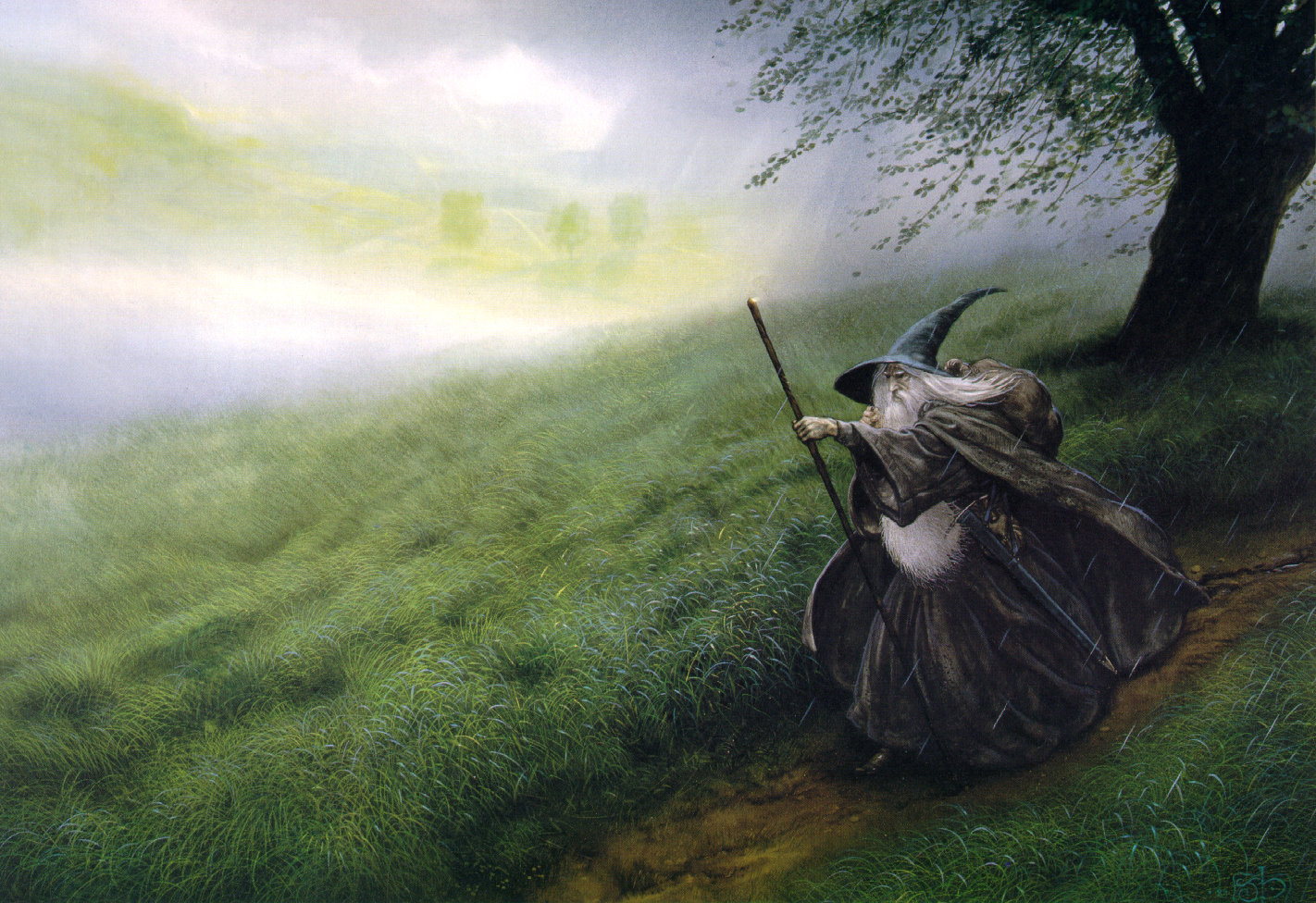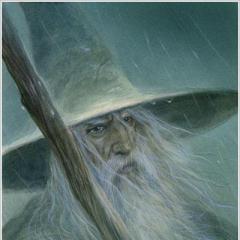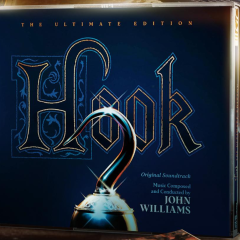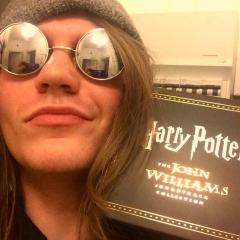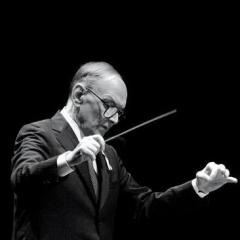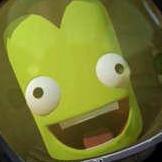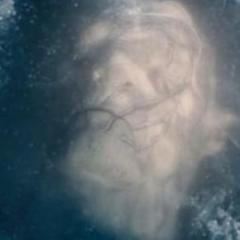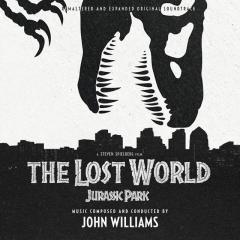-
Posts
30,352 -
Joined
-
Last visited
-
Days Won
92
Reputation Activity
-

-
 Incanus reacted to gkgyver in Abel Korzeniowski's Romeo and Juliet (Replaced James Horner) - Sony Classic OST
Incanus reacted to gkgyver in Abel Korzeniowski's Romeo and Juliet (Replaced James Horner) - Sony Classic OST
Please god, make this a melodic, orchestral score without random piano tingling and ambient sounds ...!
Thank you! Amen.
-
 Incanus got a reaction from Dixon Hill in What Is The Last Score You Listened To? (older scores)
Incanus got a reaction from Dixon Hill in What Is The Last Score You Listened To? (older scores)
Petrushka by Igor Stravinsky
Symphony in Three Movements by Igor Stravinsky
Every listen of Stravinsky's work makes you realize what huge influence he has been not only to 20th century music but beyond. Film music owes him a great debt of gratitude. Such vibrant, elegant and ferocious music.
-
 Incanus reacted to Quintus in Disney will split with Jerry Bruckheimer
Incanus reacted to Quintus in Disney will split with Jerry Bruckheimer
Indifference on a global scale.
-
 Incanus reacted to Marian Schedenig in What Is The Last Film You Watched? (Older Films)
Incanus reacted to Marian Schedenig in What Is The Last Film You Watched? (Older Films)
Since when can you count on a trailer being a faithful representation of its movie?
-
 Incanus reacted to Mari in The Book Thief (2013) - New Williams film score!
Incanus reacted to Mari in The Book Thief (2013) - New Williams film score!
This was posted an hour ago on Twitter by Thor Freudenthal (@ThorFreudenthal): At Fox watching John Williams conduct the score for The Book Thief #wow! -
 Incanus got a reaction from Jay in Datameister's Cue Analysis Thread
Incanus got a reaction from Jay in Datameister's Cue Analysis Thread
I am sure this is brilliant! I can't understand 95% of it though.
-
 Incanus got a reaction from Once in Datameister's Cue Analysis Thread
Incanus got a reaction from Once in Datameister's Cue Analysis Thread
I am sure this is brilliant! I can't understand 95% of it though.
-
 Incanus reacted to Jay in What Is The Last Score You Listened To? (older scores)
Incanus reacted to Jay in What Is The Last Score You Listened To? (older scores)
John Williams - E.T. The Extra-Terrestrial
Hey this is a good score, people should check it out!
John Williams - War Horse
After all the time that has past since it's released, my opinion of the score hasn't diminished at all. This is a beautiful score, with that achingly beautiful "reunion" theme that appears in the final tracks being the highlight above all others. It's one of the best themes from any composer of the last 20 years
Mark Mancina - Speed 2
One of the best action scores of the 90s. LOVE THIS SCORE. Shame it's barely known, and never had any pieces appear on compilation albums, etc.
Henry Jackman - Turbo
Wow, what a fun score! Between this and Wreck-It-Ralph, he's making me interested in checking out more of his stuff!
Bear McCreary - Europa Report
Loved the juxtaposition of piano medleys and synthy drum beats in this score.
Mark Mancina - Planes
WOW! The opening track of this album is easily one of the best film score cues of the year! Probably THE best so far. Must listen to the whole CD again!
-
 Incanus got a reaction from Marian Schedenig in Some great news about a possible future JAWS Re-issue!
Incanus got a reaction from Marian Schedenig in Some great news about a possible future JAWS Re-issue!
I am so glad Williams revised the Shark Cage Fugue for the Spielberg/Williams Collaboration album. It is in one word magnificent. I feel it just fades away suddenly on the OST rather disappointingly.
-
 Incanus got a reaction from Koray Savas in The Book Thief (2013) - New Williams film score!
Incanus got a reaction from Koray Savas in The Book Thief (2013) - New Williams film score!
That villain! How dare he?!!! You turn your head for one second and he has gone and written a new score and recorded it! How rude!
-
 Incanus reacted to diskobolus in John Williams in San Francisco!!! September 16, 2013
Incanus reacted to diskobolus in John Williams in San Francisco!!! September 16, 2013
I was fortunate enough to attend this concert. I've seen Williams around ten times and Spielberg introducing him twice, but the last time was at the 2006 Boston concerts, so it's been a number of years. Two things were particularly exciting about the program - inclusion of music from new films in the past couple years, and seeing Spielberg in a relatively intimate space. I've only previously seen him at Tanglewood, which is a giant venue compared to Davies Hall. This intimate atmosphere turned out to be phenomenal in the second half.
Williams walked onto the stage to an immediate standing ovation. I've never witnessed this at any of his previous concerts or even at Davis Hall which I've been to at least 20 times. The tremendous reception lasted throughout the entire evening. My theory is that he has visited San Francisco so rarely in recent years that few people have ever heard him conduct, and in addition he only conducted one night, and the result is that diehard fans were the vast majority of people to get tickets. I recall the concert selling out the day that single tickets became available. Typically, even Friday and Saturday night concerts at Davies Hall have scattered empty seats, presumably due to last minute conflicts or absentee subscription holders. I literally didn't see a single empty seat this night.
Hooray for Hollywood opened the concert, played above a montage of clips from classic films. My personal preference is not having video during montages if they have nothing specifically to do with the music. I'm there to listen, not watch random scenes from films. Williams began with a great deal of energy and his conducting strength is still there. He concluded with the same flourish and a genuine smile for the orchestra. A Far and Away extended suite came next, more subdued and sweeping compared to the first piece. I could personally do without this one since that score isn't my favorite.
Williams then introduced 3 pieces from Harry Potter. I sensed that he spoke slowly and deliberately, almost as though he had trouble recalling them. That was worrisome. At any rate, he began with Hedwig's Theme, which is of course phenomenal and very commonly performed. Huge energy from the orchestra. Nimbus 2000 from the Children's Suite followed, which frankly was a bizarre choice. Being identical to the previous piece in thematic content, the piece is scored exclusively for woodwinds which sounded extremely weak compared to the full orchestra that had just played the same melodies. I understand wanting a more subdued piece in between the two soaring concert arrangements, so why not Dobby the House Elf, or even better, A Window to the Past? Finally, Harry's Wondrous World was spectacular as always.
War Horse's Dartmoor, 1912 was the first of the newer pieces on the program. I'm not as familiar with this score so it was a pleasure to experience it without having the music already internalized. If it's not already obvious, the program consistently varies the tone, bookending more quiet pieces like this one with huge, soaring ones. Thus, Williams followed with the Star Wars / Blockade Runner concert arrangement. The audience unexpectedly burst into applause during the first few bars, which perplexes me - the program is in front of you, so how is it a surprise?
The second half started with a surprise - instead of the first few notes of Close Encounters, we got those from Jaws - once again eliciting wild applause from the audience. I'm torn between my approval of the crowd's enthusiasm and my annoyance of their noisemaking. At any rate, the Jaws theme was unexpected and fun. Following, Spielberg came on to a thunderous ovation. The theme of his narration was a more or less standard pitch for the importance of the score's role in a film. He's occasionally appeared with Williams at similar events over the years with the same speeches.
For Close Encounters, Spielberg mentioned music as a central communication channel between humans and the visitors. The excerpts accompanied the film clips, which were Barry's abduction and then various scenes from the finale. In this case, even though I don't personally prefer it, the addition of video actually makes sense, unlike with montages. Similarly, Spielberg first introduced the train car sequence from Last Crusade, rolling the entire sequence with dialogue but no score, and then Williams conducted the sequence with score, to illustrate the difference the score makes. This is one of those moments when Williams is truly the master at work. My seat was at the perfect angle such that I could actually see his video monitor with the visual cues, so rather than watch the film on the big screen, I chose to observe Williams constantly adjusting the tempo to synchronize the orchestra, speeding up or slowing down, all the while as he followed the actual pages of the score. These were marvelous moments.
There was Spielberg to observe as well. He carried great enthusiasm throughout the performance, except growing somber when introducing the theme from Schindler's List. I watched him sit in complete, absolute stillness as Barantschik played the solos. Spielberg's head was bowed as if praying silently. His face was slightly obscured to me during these moments, and I could only imagine what was going through his head. Was he perhaps visualizing scenes from his own film, or reliving the time that Perlman first played this melody for him, or simply meditating? In stark contrast, during Adventures on Earth, Spielberg's love for the music was clearly visible. He nodded his head and moved his lips in sync with the soaring notes, almost forgetting that he was on stage. I believe Spielberg truly enjoys these events - as a director, he likely doesn't have that many chances to sit next to his lifelong friend, surrounded by one of the world's best orchestras playing the music he must know and love very much.
Williams seemed tired but appreciative as the program drew to a close. Again, the crowd came to their feet in a thunderous ovation. As a first encore, Williams had chosen the cue for Lincoln's second inaugural address. I recall that Spielberg referred to his film and Williams' score as requiring "a tempered approach." I'd been hoping for a piece from Lincoln and this was such a beautiful choice. Truly a treat. The second and final encore was Raiders. There is a phenomenon I'll perhaps dub "The Raiders Surprise" - in which an uninformed but enthusiastic audience does not recognize the piece until the fanfare arrives in the 5th measure and only then interrupts the piece with applause. I've witnessed this phenomenon on at least three or four occasions.
I have to say, this concert was one of the most memorable I've ever been to. Even though Williams didn't have the boundless energy that he's displayed in the past, it was a pleasure to witness him still in command of a great orchestra and playing beautiful new music. And of course, a rare chance to witness Spielberg rapturously appreciating the music of his own films. Truly wonderful. -
 Incanus reacted to indy4 in John Williams in San Francisco!!! September 16, 2013
Incanus reacted to indy4 in John Williams in San Francisco!!! September 16, 2013
Just got back...the concert was great! I was seated Center Terrace behind the orchestra (where the choir would stand). We got a great view of the maestro (although during the video clips the screen covered the top of his head). I've only ever seen him conduct the LA Phil at the HOllywood Bowl, but I felt the performances were a lot stronger--faster tempos, less mistakes, better mix. Part of that is probably due to being inside a concert hall vs outdoors. Also the brass players (especially trumpets) were playing into their music stands, so the sound reflect off the stands and right onto us. I loved it--as a trombone player, I am more than happy with a brass-heavy performance. It was surreal to see Spielberg so close and hear him talk in person.
The program was the same one listed online, except for the addition of Jaws Theme right after intermisison and, for encores, With Malie Towards None (retooled concert version) and Raiders March. The only weird programming decision was playing Hedwig's Theme and then directly after "Nimbus 2000" from the Chidlren's Suite. The former features the Nimbus theme extensively, so hearing its concert version directly after was a little odd. As a brass player I would've loved to hear "Quidditch" instead of Nimbus, and it would have solved weird programming decision.
My favorite was probably Far and Away, since I've never heard it live before (it was not the violin solo version available on Greatest Hits). I also don't think I've ever heard the suite--it was all very familiar, I think it was just the first track of the OST plus the End Credits. War Horse was beautiful as always, with great flute solos. Indy's First Adventure was really fun--I'm glad they did the entire scene, instead of cutting it off midway like they did on the LC OST. There were also a few new bars (besides the slightly tweaked ending) when Indy falls into the lion's train car. E.T. was also fantastic. Really they all were, it's not even worth listing my favorites because sooner or later I will list them all. Violin soloist was beautiful on Schindler's List.
The audience reaction seemed to be more enthusiastic than at the Bowl--again, that's probably mostly due to being indoors versus outdoors. While I was fully expected laughter during the first few notes of Jaws, the enthusiasm and strength of it surprised me, so much that I started laughing too. Spielberg said "We're definitely coming back to SF!" during one of the many standing ovations we gave--I wonder if he says that at every gig. I hope not, because I would love to do this again. Overall it was a fantastic performance and a really really fun night.
-
 Incanus got a reaction from Dixon Hill in What Is The Last Score You Listened To? (older scores)
Incanus got a reaction from Dixon Hill in What Is The Last Score You Listened To? (older scores)
And I think the same impulses, the same stylistic traits that Copland culled from the folk idiom and musical vernacular of the country are part of this same cycle, where Williams was clearly trying to capture something very American in his music for Lincoln, to evoke those communal memories and feeling of America, perhaps idealized and perhaps another new invention in itself but still no less authentic than Shaker hymns. They have come to represent America in music. Allusion is as I have always said a very central tool for a musical storyteller, an ability to evoke with or without clear or exact reference or quote from existing works a certain music mood, feel, style, geographic location or point in history. An ability to distill or understand certain musical elements central to the sound that is required and communicating it to the audience in a direct way.
-
 Incanus got a reaction from Dixon Hill in What Is The Last Score You Listened To? (older scores)
Incanus got a reaction from Dixon Hill in What Is The Last Score You Listened To? (older scores)
Well that would be beyond greatness and a minor miracle. Top-10 JW material for me. A complete and comprehensive presentation would be definitely a treasure.
I had completely forgotten how delightfully charming and romantic score Sabrina is. It was about time to revisit it.
-
 Incanus reacted to Marcus in Lincoln SCORE Discussion thread
Incanus reacted to Marcus in Lincoln SCORE Discussion thread
To me, as a composer, there's no real "link"; there are melodic and very general textural similarities, but I consider those more a question of musical archetypes. Both the Beethoven and the Williams stem from a style that crystallized in late 18th Century revolutionary France, a kind of musical heroicism that is essentially based on the melodics of revolutionary vernacular songs (songs that also form part of the American musical core -music was always international!).
It is simply an almost impossibly thankless task to go around and crib musical ideas from one's forebears. It's just not what we do! It is so much easier to be original (not to mention more fun).
Therefore, I will always -unless it's a matter of conscious hommage, or unconscious plagiarism (which is mostly a children's disease plagueing amateurs, not professionals)- be dismissive of any speculation as to "other origins" of a piece of music.
Like any language, a musical language doesn't originate with any one person; we all share it, practice it, form our idiosyncracies and dialects and take part in its continued, ever-expanding creation.
-

-
 Incanus got a reaction from SafeUnderHill in .
Incanus got a reaction from SafeUnderHill in .
He that addeth knowledge, addeth also pain. Official motto of JWFan.
-
 Incanus got a reaction from SafeUnderHill in Howard Shore's The Desolation Of Smaug (Hobbit Part 2)
Incanus got a reaction from SafeUnderHill in Howard Shore's The Desolation Of Smaug (Hobbit Part 2)
Great news! Some European connection was retained at least.
-
 Incanus got a reaction from Dixon Hill in London or Los Angeles for Star Wars VII score? [UPDATE: It's Los Angeles]
Incanus got a reaction from Dixon Hill in London or Los Angeles for Star Wars VII score? [UPDATE: It's Los Angeles]
Rumour grew of a shadow in LA, whispers of a nameless fear. And the AFM perceived its time had now come.
-
 Incanus reacted to gkgyver in The Lord of the Rings Score Restored (Unused Howard Shore Music Restored To Picture)
Incanus reacted to gkgyver in The Lord of the Rings Score Restored (Unused Howard Shore Music Restored To Picture)
Technically, NO locations NEED to be real ones if you look at the Hobbit. It's just a question of how does it make the film look? There are of course necessities to build sets in fantasy films like this, like Goblintown, or to create huge battlefields in the computer (Helm's Deep, Pelennor). But contrary to LotR, in the Hobbit, sets were used without any need to do so.
As an example, why can't you shoot the final warg battle in a real forest, using digital extensions for the cliff edge? Why does the whole forest need to be built? Imagine the forest around Amon Hen for the finale in FotR being fake. Or why is there need to build a set for the dwarves' night camp?
Remember to which remote locations the cast was flown to shoot the smallest scenes in LotR. Technically, there was no need whatsoever to fly the cast to a snowy mountain just to shoot the small scene between Boromir and Frodo. Shoot on fake snow, add a backdrop, place CGI figures on a shot flying over the mountain. Done. But that wasn't the mindset on LotR. It is however now on The Hobbit.
I just can't imagine Edoras being built for freaking real today, with PJ's 2013 mindset.
And real is real, there is no replacement for that, not ever, period. LotR, particulary FotR and TTT felt and looked terrific because it was a fantasy story in a real environment, opposite to the usual fantasy fare, who try to sell a real story in a fake fantasy environment, and that is unfortunately where the Hobbit was heading.
-
 Incanus got a reaction from Jay in The Lord of the Rings Score Restored (Unused Howard Shore Music Restored To Picture)
Incanus got a reaction from Jay in The Lord of the Rings Score Restored (Unused Howard Shore Music Restored To Picture)
I have to say that even after all these years the restored musical sequences have been enlightening. I have never made an experiment of restoring the music to the movie myself and have gone by relying on my memory when imagining where unused music should approximately go but seeing all this music in its proper place has been a real treat. So thank you for your continued efforts Faleel.
-
 Incanus got a reaction from Luke Skywalker in Missouri Breaks 2CD Complete Score (SOLD OUT in 72 hours!)
Incanus got a reaction from Luke Skywalker in Missouri Breaks 2CD Complete Score (SOLD OUT in 72 hours!)
Verse of the Discs
Three discs for the greastest fans under the sky,
Seven for the completists who here endlessly moan,
Nine for late comers,doomed them from eBay to buy,
One for the Administator on his hundred disc throne,
In the land of JWFan where all the soundtracks lie.
One disc to rule them all,
One disc to find them,
One disc to bring them all,
And in the dorkness bind them,
In the land of JWFan where all the soundtracks lie.
-
 Incanus reacted to AIFan in [SCORES]: The Five-Star Collection
Incanus reacted to AIFan in [SCORES]: The Five-Star Collection
Hi all,
It's possible that something like this has already been done; if so, I was not able to find it, at least within the Reviews section. I am introducing a topic meant to outline, in brief analysis, the case for categorizing certain John Williams scores by certain rankings. In doing so, I am opening up the thread for folks to comment on whether or not those scores are worthy of the rankings assigned to them (5-star, 4.5-star, 4-star, etc.). I will be attempting to review all of the officially-released scores, reflecting those I own on CD or other medium, but in any case, those that I have heard several times and feel comfortable commenting on. I have made a preliminary list of his scores and stratefied them according to my own taste, and have begun the fun task of creating cases in somewhat of a non-technical analysis to explain why I have assigned a rating to them.
Feel free to comment on these selections and their ratings -- part of what I hope to do is generate some discussion on these scores, and inspire some listening to both the more famous and also lesser-known scores that I believe deserve some more attention. I may (due to time constraints) just leak these out in dribs and drabs, but I will try to do so in regular succession. I will admit that some of that hesitation is intentional in order to build suspense!...despite how self-important that sounds...
So, without any further ado, I have completed my analysis of the first of what I consider to be John Williams Five-Star Scores:
A.I. Artificial Intelligence (2001): No matter what one’s opinion of the film, a hybrid of the film-making sensibilities of Steven Spielberg and Stanley Kubrick, there is no denying the quiet solitude and manic rhythm both inherent in the score the maestro composed for the dystopic and ultimately conflicted film that became of that marriage. In fact, it is somewhat fitting that there are occasional references to some early twentieth-century modern composers (Ligeti and Stravinsky, primarily) and to the driving pulsating style of Philip Glass, as Kubrick himself had been rather fond of temp-tracking (and sometimes simply appropriating) classical music during the production phases of his films.
There was no question, as a Spielberg production, that Williams would be the artist behind the music, but the creation of such beauty from what was at times a sterile film about the creation and then rejection of an artificial child as a replacement for a terminally ill human child to two grieving parents is truly remarkable. The score is essentially (like the film) of two minds: the quiet, meditative sections, focusing on solo voice or oboe (both mainly for David’s Theme, For Always, and in the Hide and Seek Theme), or cello (used mainly for Monica’s Theme); and the percussive steady drumming of the pursuit themes (present largely in The Mecha World, Abandoned in the Woods, and Rouge City, representing various chases or travels as seen in the film). The struggle between Mecha elements (David, the mechanical being) in the film and the on-again, off-again relationship with various organic life forms that interact with David throughout (Monica and Hank, the Flesh Fair ringleader, the Police, Gigolo Joe, Professor Hobby) is represented perfectly in the score, if not in the film itself.
The film’s first third is filled with hints of David’s attachment to his new family, making the most of the Hide and Seek Theme, which is more prevalent in the score than I had originally thought, causing me to look for it even more in order to see where Williams may have inserted it elsewhere. The second act, finding David in the most perilous situations, prominently features the pursuit sequences, and the third act, which many moviegoers fault for their dissatisfaction related to the film itself, is where Monica’s Theme (For Always) shines the brightest (as heard in Stored Memories, The Reunion, and The Search for the Blue Fairy on the album), and brings a cohesiveness not quite so successfully accomplished by Spielberg himself in the visuals. A special nod would have to go to the marrying of visuals and music in the scene where David plunges from Professor Hobby’s office window into the swollen waters of Manhattan below. Overall, whatever one’s thoughts on the film, the score is one of the true gems in an already-full crown worn by the king of current film composition, Maestro Williams.
Feel free to comment, and be sure to stay tuned for the next installment of John Williams' Five-Star Score Collection!
Regards,
AIFan
-
 Incanus reacted to AIFan in [SCORES]: The Five-Star Collection
Incanus reacted to AIFan in [SCORES]: The Five-Star Collection
Alright, here is the second installment of the Five-Star Collection from John Williams (in my opinion):
Harry Potter and the Prisoner of Azkaban (2004): For the third installment of the Harry Potter movie series (based on, it should go without saying, the popular novels based on the same young magician), it is not clear as to whether the director’s instructions to John Williams were to forget everything that came before (the maestro had, of course, composed the scores to the wildly successful and identifiable first two films in the franchise up to that point).However, that is the direction the composer took, choosing to take a road not previously traveled and instead infusing the third film with an entirely new feel to match the new look of the movie visuals (the first two films had been masterfully helmed by Chris Columbus, but the studio had selected Alfonso Cuaron to direct Prisoner of Azkaban).The new film would have not just a darker look, representing the beginning of the end of childhood for the main protagonists, but would also focus on the characters’ pasts, mainly Harry Potter’s history and that of his parents’ adventures while battling He Who Shall Not Be Named.Whether this was a direct inspiration for Williams’ concentration on more medieval predecessors to today’s orchestral instruments to craft the score, or simply his response to the look and feel of the film under Cuaron’s hand, the results were that the series was given new life with this magnificent score, proving that a series, and a composer, are never too old to receive new breath and learn new tricks.
The first of the new themes, and one which is referenced frequently but by no means to any tiresome extent, is what could be called the Parents Theme (featured in its concert version as Window to the Past).This utterly beautiful and heartbreaking tune, actually consisting of several lines, is referenced in the movie generally when Harry is thinking about his parents, or when his parents are mentioned (most memorably when he has a discussion with Professor Lupin at a crucial point in the movie).It is played variously by solo recorder, flute, at first interwoven with and then played by lush strings, clarinet, and then solo French horns (as a soaring and soulful conclusion) all within Window to the Past, as it is passed along to various instrument groups, and later is brought up gloriously in the Finale.The officially-released soundtrack does not do it justice as nearly as the full film score does, but it is enough to send shivers down the spine every time.
The second main theme featured a couple of times in the film is that of Buckbeak, the flying creature attended to by Hagrid through the film, and who forms somewhat of a bond with Harry especially.The concert piece (Buckbeak’s Flight) features a rousing start on banging timpanis, and then launches right into an upward trajectory, much like the beast himself.The bassoons start cranking away, but then the flutes provide a woodwind launch to an eventual handoff to beautiful violin music at the top of the register, and that’s when the theme really gets going into what seems like a cut-time description of what it must be like to fly on this mythical winged horse.Off-beats are accentuated by flute decoratives, and before the listener knows it, he or she is let down gently by a flute descent.It is the closest that Williams has come to putting flight to music since either Hook, SpaceCamp, or E.T. (take your pick).
The third main theme is one that was composed well enough in advance that it was used for many of the previews for the film: a little medieval music played in chamber style that is referred to in the soundtrack as “Double Trouble”, and it is also featured prominently at certain points in the soundtrack, also on different and entertaining groups of instruments (most amusingly in “Hagrid the Professor”, which starts with a kind of riff on the theme, and then the more straightforward version of it; it is also beautifully used in a kind of bedtime nursery motif version in “Secrets of the Castle”).That Williams could essentially just pull this out of his cap for the third film in a series where he could have just mailed in more of the same of the first two scores is a tribute to his true genius and it demonstrates just how much he must be the envy of so many in the field.It is utterly astounding how pliable this theme is as well.
There is very rare used material, and there are many other minor themes making appearances that cannot even begin to be analyzed here (I’m thinking specifically of Aunt Marge’s Waltz, The Whomping Willow, The Snowball Fight, The Patronus / Dementors Theme), and probably the best Quidditch music Mr. Williams wrote for the series.All in all, clearly a five-star effort belying the true inspiration he received from this film.
Comments? Questions? Feel free to post!
AIFan

